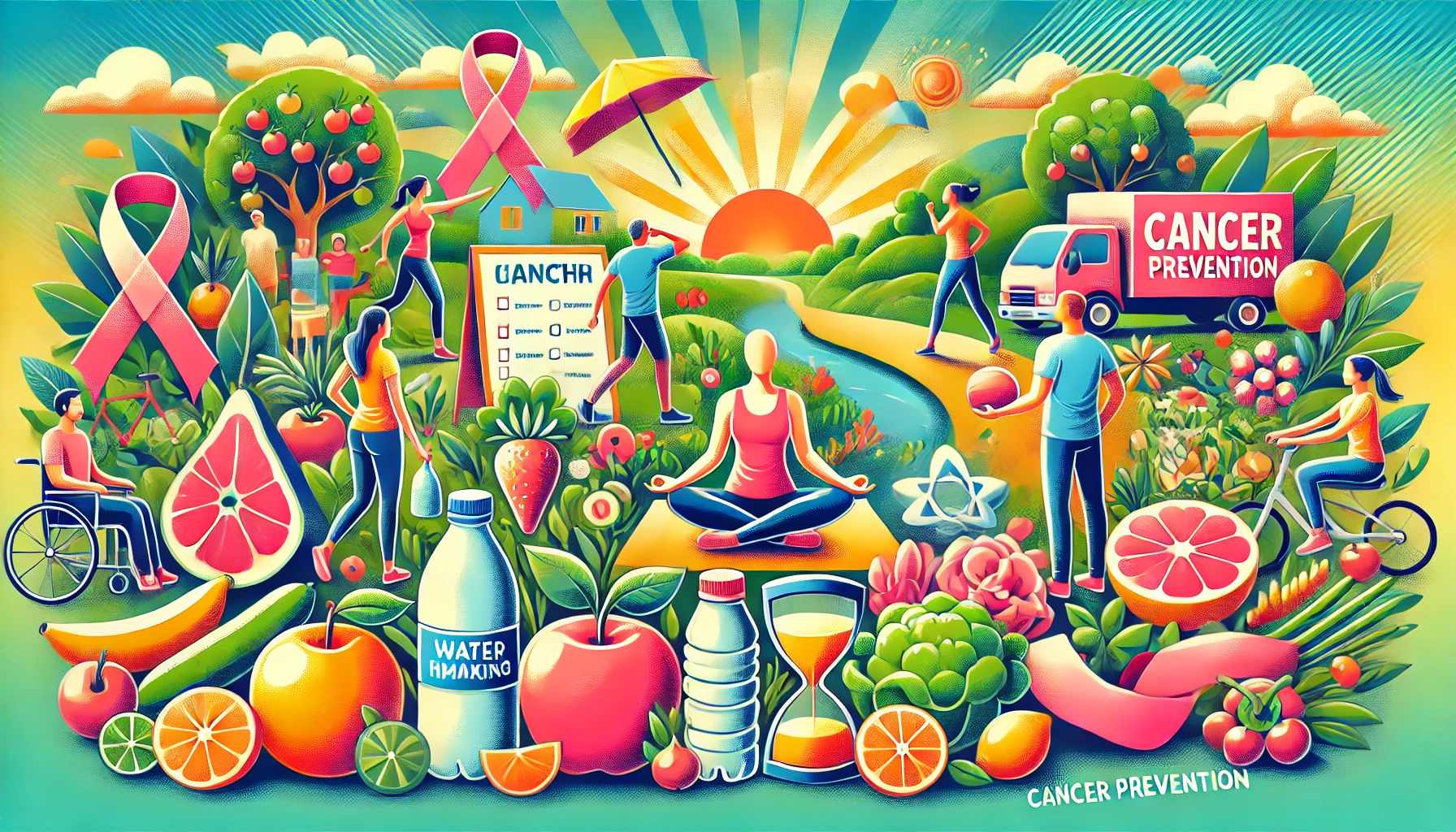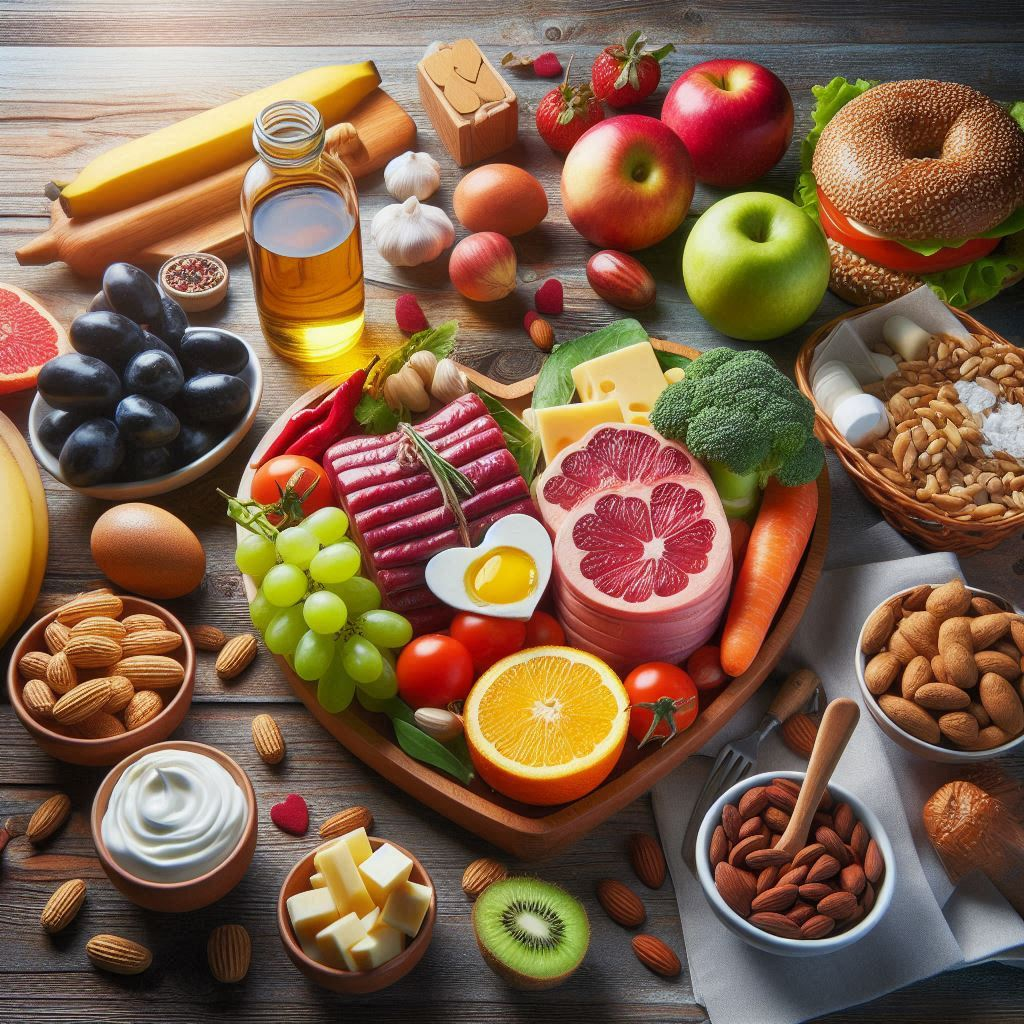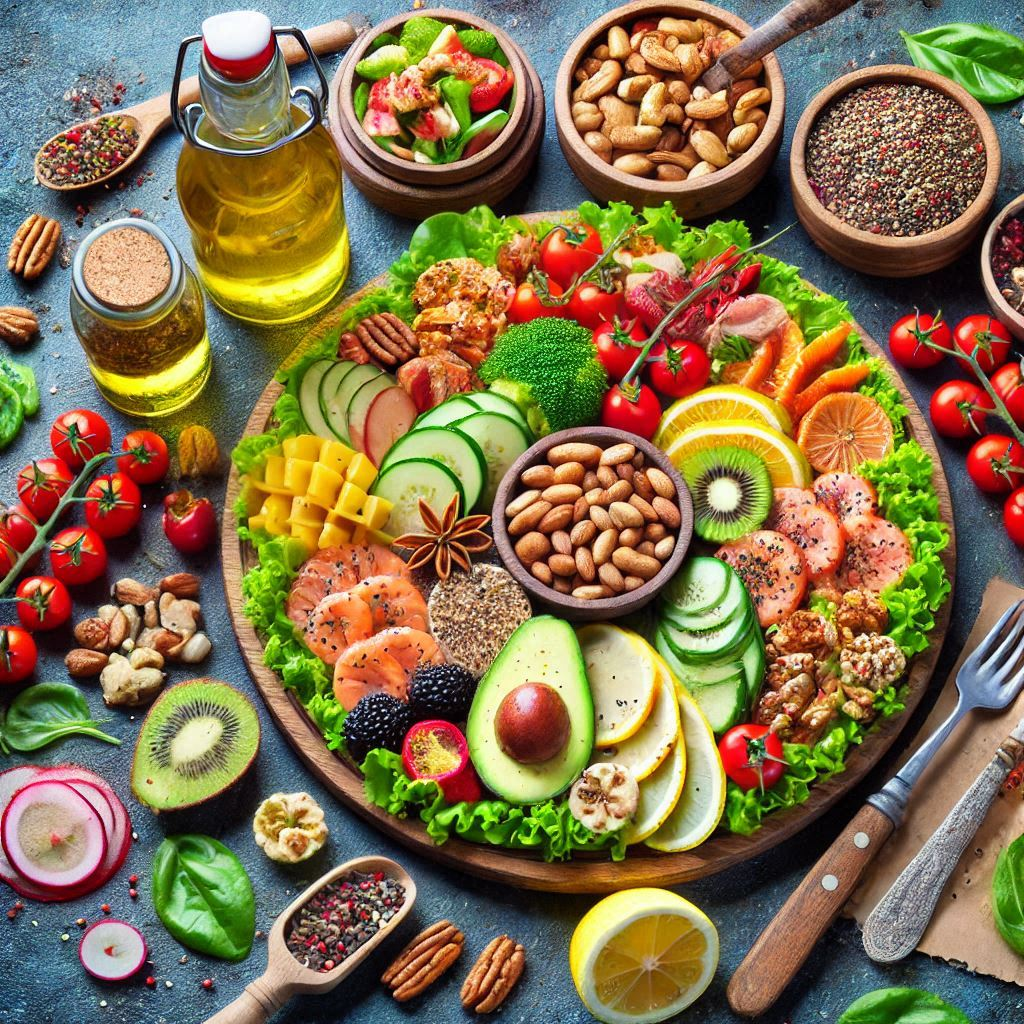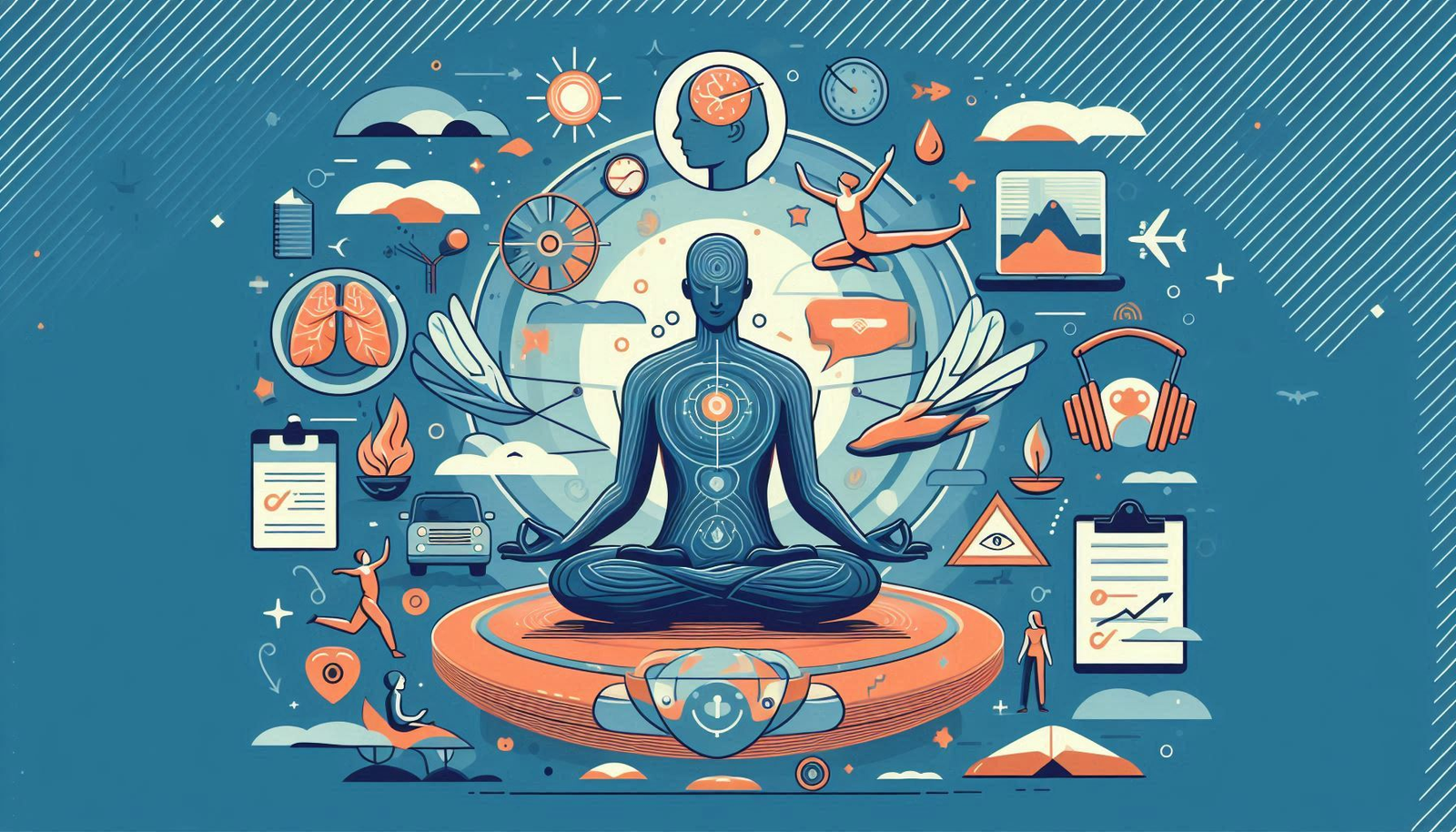
10 Proven Ways to Shield Yourself from Cancer”
Discover 10 proven ways to protect yourself from cancer and enhance your health through informed lifestyle choices, including proven ways to improve your diet and exercise habits.

10 Proven Cancer Prevention Tips to Safeguard Your Health

Despite the formidable nature of cancer, you can significantly reduce your risk by arming yourself with knowledge and proactive strategies. This comprehensive guide offers ten evidence-based cancer prevention tips to help you take control of your health and well-being. By incorporating these practices into your daily life, you’ll be taking powerful steps towards a cancer-free future.
Implementing these proven ways into your routine will empower you to take charge of your health.
Understanding Cancer: A Brief Overview
By understanding these proven ways, you can make informed decisions that enhance your well-being.
Focusing on these proven ways ensures you are actively preventing cancer through lifestyle choices.
Explore these proven ways to make a meaningful impact on your health.
Cancer, a complex group of diseases, occurs when abnormal cells divide uncontrollably and spread to other parts of the body. While the exact causes of cancer are multifaceted, research has identified numerous risk factors that contribute to its development. These include genetic predisposition, environmental exposures, lifestyle choices, and certain infections.
Implementing these proven ways can significantly enhance your quality of life.
Consider these proven ways as essential steps in your health journey.
By recognizing these proven ways, you can contribute to a healthier community.
The good news is that many of these risk factors are within your control. By making informed decisions about your health and adopting preventive measures, you can significantly reduce your chances of developing cancer. Understanding the basics of cancer biology empowers you to take action and make choices that support your long-term well-being.
These proven ways not only prevent cancer but also enhance your overall health.
It’s important to note that cancer is not a single disease but rather a collection of related diseases with varying characteristics and risk factors. This diversity underscores the importance of a comprehensive approach to cancer prevention, addressing multiple aspects of your lifestyle and environment.

The Power of Prevention: Why It Matters
Staying active is one of the most proven ways to prevent cancer and enhance your overall health.
Prevention is a powerful tool in the fight against cancer. By focusing on prevention, you can potentially avoid the physical, emotional, and financial toll that cancer can take on individuals and families. Moreover, many cancer prevention strategies offer additional health benefits, improving your overall quality of life and reducing the risk of other chronic diseases.
Research has shown that a significant proportion of cancer cases are preventable through lifestyle modifications and environmental interventions. By adopting a proactive approach to your health, you’re not only reducing your cancer risk but also investing in your long-term well-being and vitality.
Prevention also plays a crucial role in public health efforts to reduce the global burden of cancer. As more individuals embrace cancer prevention strategies, we can collectively work towards a future with lower cancer rates and improved health outcomes for all.
These proven ways to quit smoking can drastically lower your cancer risk.

Nutrition as a Shield: Eating Your Way to Better Health
Understanding the proven ways to limit alcohol consumption is crucial for cancer prevention.
Your diet plays a crucial role in cancer prevention. A nutrient-rich, balanced diet can help strengthen your immune system, reduce inflammation, and provide your body with the tools it needs to fight off potential cancer-causing agents. Here are some key dietary guidelines to follow:
- Embrace plant-based foods: Fill your plate with a variety of colorful fruits, vegetables, whole grains, and legumes. These foods are rich in antioxidants, fiber, and other cancer-fighting compounds.
- Limit processed and red meats: High consumption of processed meats and red meats has been linked to an increased risk of certain cancers. Opt for lean proteins like fish, poultry, and plant-based protein sources instead.
- Choose healthy fats: Incorporate sources of omega-3 fatty acids, such as fatty fish, walnuts, and flaxseeds, while limiting saturated and trans fats.
- Moderate your alcohol intake: If you choose to drink alcohol, do so in moderation. For cancer prevention, it’s best to limit or avoid alcohol altogether.
- Stay hydrated: Drink plenty of water throughout the day to support your body’s natural detoxification processes.
By making these dietary changes, you’re not only reducing your cancer risk but also improving your overall health and well-being. Remember, small changes can add up to significant benefits over time.
Stay Active: The Role of Exercise in Cancer Prevention
Regular physical activity is a powerful tool in cancer prevention. Exercise helps maintain a healthy weight, reduces inflammation, and supports your immune system. Here’s how you can incorporate more movement into your daily routine:
- Aim for at least 150 minutes of moderate-intensity aerobic activity per week: This can include brisk walking, cycling, or swimming. Alternatively, you can opt for 75 minutes of vigorous-intensity activity like running or high-intensity interval training.
- Include strength training: Build muscle and boost your metabolism by incorporating resistance exercises at least twice a week. This can include bodyweight exercises, weightlifting, or using resistance bands.
- Break up sedentary time: If you have a desk job, make an effort to stand up and move around every hour. Consider using a standing desk or taking walking meetings when possible.
- Find activities you enjoy: The best exercise routine is one you’ll stick to. Experiment with different activities until you find ones that you look forward to doing regularly.
Remember, any amount of physical activity is better than none. Start where you are and gradually increase your activity level over time. Your body will thank you for the investment in your long-term health.
Kick the Habit: Quitting Smoking and Limiting Alcohol
Tobacco use and excessive alcohol consumption are two of the most significant modifiable risk factors for cancer. By addressing these habits, you can dramatically reduce your cancer risk:
Quitting Smoking
Implementing proven ways of stress management can protect your health and well-being.
If you smoke, quitting is the single most important step you can take for cancer prevention. Here are some strategies to help you quit:
- Set a quit date and stick to it
- Seek support from friends, family, or a support group
- Consider nicotine replacement therapy or medication to manage cravings
- Develop coping strategies for stress and triggers
- Stay motivated by reminding yourself of the health benefits of quitting
Limiting Alcohol
These proven ways to manage stress contribute to overall health and cancer prevention.
While moderate alcohol consumption may have some health benefits, excessive drinking increases cancer risk. Follow these guidelines:
- Limit alcohol to no more than one drink per day for women and two drinks per day for men
- Choose alcohol-free days each week
- Opt for non-alcoholic alternatives at social events
- Be aware of serving sizes and avoid oversized drinks
By addressing these habits, you’re not only reducing your cancer risk but also improving your overall health and quality of life.
Incorporating sleep hygiene is among the proven ways to enhance your immune system.
Regular check-ups are proven ways to detect potential health issues early.
Sun Safety: Protecting Your Skin from Harmful Rays
Skin cancer is one of the most common and preventable forms of cancer. By practicing sun safety, you can significantly reduce your risk:
Becoming environmentally aware of potential carcinogens is one of the proven ways to reduce cancer risk.
- Use broad-spectrum sunscreen: Apply a sunscreen with an SPF of at least 30 to all exposed skin, even on cloudy days. Reapply every two hours or after swimming or sweating.
- Seek shade, especially during the middle of the day when the sun’s rays are strongest (typically between 10 am and 4 pm).
- Cover up: Wear protective clothing, including long-sleeved shirts, long pants, and wide-brimmed hats. Look for clothing with built-in UV protection for added benefit.
- Protect your eyes: Wear sunglasses that block both UVA and UVB rays to protect your eyes and the delicate skin around them.
- Avoid tanning beds: Indoor tanning exposes you to harmful UV radiation and significantly increases your risk of skin cancer.
- Check your skin regularly: Familiarize yourself with your skin and report any changes to your healthcare provider promptly.
By making sun safety a daily habit, you’re investing in the long-term health of your skin and reducing your risk of skin cancer.
Stress Management: Finding Balance for Better Health
Vaccines are proven ways to prevent specific cancers caused by viruses.
Chronic stress can weaken your immune system and potentially increase your cancer risk. Implementing effective stress management techniques can help protect your health:
- Practice mindfulness and meditation: These techniques can help you stay present and reduce anxiety. Start with just a few minutes a day and gradually increase your practice.
- Engage in regular physical activity: Exercise is a powerful stress-buster. Find activities you enjoy and make them a regular part of your routine.
- Prioritize sleep: Aim for 7-9 hours of quality sleep each night. Establish a relaxing bedtime routine to help you unwind.
- Connect with others: Strong social connections can help buffer the effects of stress. Make time for friends and family, and consider joining support groups or community organizations.
- Try relaxation techniques: deep breathing exercises, progressive muscle relaxation, or yoga can help calm your mind and body.
- Seek professional help if needed: If stress feels overwhelming, don’t hesitate to reach out to a mental health professional for support.
Remember, managing stress is an ongoing process. Be patient with yourself and celebrate small victories as you develop healthier coping mechanisms.
Sleep Well: The Underrated Cancer-Fighting Tool
Quality sleep is essential for overall health and may play a role in cancer prevention. Here’s how you can improve your sleep habits:
- Stick to a sleep schedule: Go to bed and wake up at the same time every day, even on weekends.
- Create a relaxing bedtime routine: Engage in calming activities like reading, gentle stretching, or listening to soothing music before bed.
- Optimize your sleep environment: Keep your bedroom dark, quiet, and cool. Invest in a comfortable mattress and pillows.
- Limit screen time before bed: The blue light emitted by electronic devices can interfere with your sleep-wake cycle. Try to avoid screens for at least an hour before bedtime.
- Watch your diet: Avoid large meals, caffeine, and alcohol close to bedtime. These can disrupt your sleep quality.
- Exercise regularly: Physical activity can improve sleep quality, but avoid vigorous exercise close to bedtime.
Understanding the proven ways to create a cancer prevention lifestyle is crucial.
Emphasizing these proven ways will guide you towards a healthier future.
By prioritizing sleep, you’re giving your body the time it needs to repair and regenerate, potentially reducing your cancer risk.
These proven ways to commit to a healthier lifestyle will benefit you in the long run.
Start integrating these proven ways into your daily routine now for a healthier tomorrow.
Regular Check-ups: Early Detection Saves Lives
While not strictly a preventive measure, regular health check-ups and screenings can detect cancer in its early stages when it’s most treatable. Here’s what you should know:
- Know your family history: Share this information with your healthcare provider to determine if you need more frequent or earlier screenings.
- Follow recommended screening guidelines: These vary based on age, gender, and risk factors. Common screenings include mammograms, colonoscopies, and Pap smears.
- Don’t ignore symptoms: If you notice any unusual changes in your body, don’t hesitate to consult your healthcare provider.
- Stay up-to-date with vaccinations: Some vaccines, like the HPV vaccine, can help prevent certain types of cancer.
- Discuss your concerns: Use your check-ups as an opportunity to discuss any health concerns or questions you may have with your healthcare provider.
Remember, early detection can significantly improve cancer outcomes. Make regular check-ups a priority in your health routine.
Environmental Awareness: Reducing Exposure to Carcinogens
Your environment plays a crucial role in cancer risk. By being aware of potential carcinogens and taking steps to reduce your exposure, you can further protect your health:
- Filter your water: Use a high-quality water filter to remove potential contaminants from your drinking water.
- Choose organic when possible: This can help reduce your exposure to pesticides and other chemicals.
- Be mindful of household products: Opt for natural cleaning products and personal care items to minimize exposure to potentially harmful chemicals.
- Improve indoor air quality: Use air purifiers, open windows regularly, and avoid synthetic air fresheners.
- Be cautious with plastics: Use glass or stainless steel containers for food storage, and avoid heating food in plastic containers.
- Check your home for radon: This naturally occurring radioactive gas can increase lung cancer risk. Home testing kits are readily available.
By making these small changes in your environment, you’re creating a healthier space for yourself and your loved ones.
Vaccines and Screenings: Proactive Steps for Prevention
Certain vaccines and screening tests can play a crucial role in cancer prevention:
Vaccines:
- HPV vaccine: Protects against human papillomavirus, which can cause several types of cancer, including cervical cancer.
- Hepatitis B vaccine: Helps prevent liver cancer by protecting against hepatitis B infection.
Screenings:
- Colonoscopy: Screens for colorectal cancer
- Mammogram: Detects breast cancer
- Pap smear and HPV test: Screen for cervical cancer
- Prostate-specific antigen (PSA) test: Screens for prostate cancer
- Skin checks: Look for signs of skin cancer
Consult with your healthcare provider to determine which vaccines and screenings are appropriate for you based on your age, gender, and risk factors.
Putting It All Together: Creating Your Cancer Prevention Lifestyle
Incorporating these cancer prevention tips into your daily life may seem overwhelming at first, but remember that small, consistent changes can make a big difference. Here’s how you can create a sustainable cancer prevention lifestyle:
- Start small: Choose one or two areas to focus on initially, and gradually incorporate more changes over time.
- Set realistic goals: Make your goals specific, measurable, and achievable. Celebrate small victories along the way.
- Create a support system: Share your goals with friends and family, and consider finding an accountability partner.
- Track your progress: Keep a journal or use a health app to monitor your habits and see how far you’ve come.
- Be flexible: Life happens, and there will be setbacks. Don’t let perfectionism derail your efforts. If you slip up, simply get back on track with your next choice or meal.
- Educate yourself: Stay informed about the latest cancer prevention research and recommendations. Knowledge is power in your health journey.
- Lead by example: As you adopt healthier habits, you may inspire others around you to do the same, creating a ripple effect of positive change.
Remember, cancer prevention is a lifelong journey, not a destination. By consistently making choices that support your health, you’re investing in a brighter, healthier future for yourself and those you love.
Ready to take control of your health and reduce your cancer risk? Start by choosing one tip from this article to implement today. Whether it’s adding more vegetables to your diet, scheduling that overdue health check-up, or taking a daily walk, every step counts. Your future self will thank you for the investment in your health. Don’t wait—your cancer prevention journey starts now!




